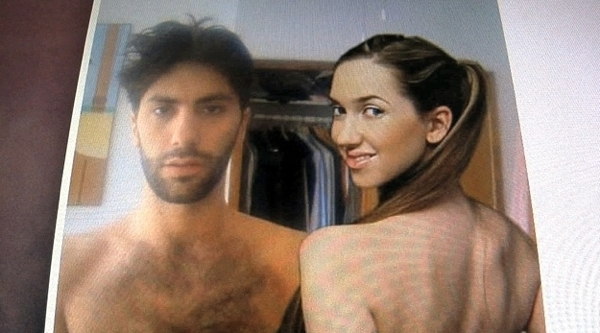Movie review by Greg Carlson
The success of “Catfish,” a slippery curiosity described by its creators as a documentary, depends on Universal’s calculated marketing strategy, which begs critics and audience members to avoid spoilers. If you intend to see it and would like to do so without knowing its twists and turns, stop reading now. “Catfish” has been aptly described as “the other Facebook movie,” and Ariel Schulman and Henry Joost’s fable-like construction shares much in common with “The Social Network,” most notably an unsettling subtext that concerns the diffusion of interactive media from insiders/haves to outsiders/have-nots.
Presumably tech-savvy New York City photographer Yaniv “Nev” Schulman, whose faux-sweetness often smells like smug condescension, forges an online friendship with 8-year-old Abby, who paints copies of Nev’s photos and mails prints to his office from Michigan’s Upper Peninsula. Nev soon falls hard for Abby’s beautiful older sister Megan, exchanging text messages and cell phone calls. As the long-distance electronic romance blossoms, Nev grows suspicious that his new friends are not who they claim to be, and the filmmakers take a road trip to get to the bottom of the mystery. Eventually, they come face to face with Angela Wesselman-Pierce, a duplicitous dreamer who tricked Nev by posing as both Abby and Megan.
The revelation that awkward housewife and diabolical prevaricator Angela Wesselman-Pierce fabricated her daughter’s artistic achievements as well as the entire persona of Nev’s crush Megan will come as no surprise to anyone who has seen Amir Bar-Lev’s “My Kid Could Paint That.” Since the feeding frenzy over “Catfish” began, Wesselman-Pierce has been scarce, appearing in Jay Schadler’s fluffy “20/20” piece to corroborate the film’s content (and declare herself schizophrenic). Amy Kaufman’s “Los Angeles Times” article raises more questions about the mysterious woman, hinting that many Ishpeming, Michigan locals do not know her at all.
Kyle Buchanan, reporting from the Sundance Film Festival last January for “Movieline,” was among the first journalists to address the possibility that the Schulman brothers and Joost were presenting a story that didn’t add up. Buchanan zeroed in on the queasy way the Schulmans and Joost appear to exploit Wesselman-Pierce on camera. Other voices have made bolder accusations. It is entirely possible that some – or all – of Wesselman-Pierce’s actions were concocted expressly for the movie.
Many additional details seem too good to be true: a pulse-quickening, “Blair Witch”-esque visit to a decoy farmhouse in the middle of the night follows a scene in which Nev rummages through a stranger’s mail to conveniently discover the postcards he sent to Megan. The movie’s title is explained in a weirdly poetic and eloquent monologue shared by Angela’s marble-mouthed husband. If this guy is for real, a screenwriting agent should acquire his services immediately.
“Catfish” has been grouped with “Exit Through the Gift Shop” and “I’m Still Here” as a stunt documentary more than willing to adjust and tweak what we might desire to identify as real into a kind of cinematic decoupage, varnishing layer upon layer of “truth” until we have no way to know – or much incentive to care – whether anything that unfolds is non-fiction. Ultimately, the question of the film’s veracity doesn’t matter, since the constantly rolling cameras remind viewers that every shot has been collected and assembled to pique enough interest to make us want to buy the ticket and take the ride.
